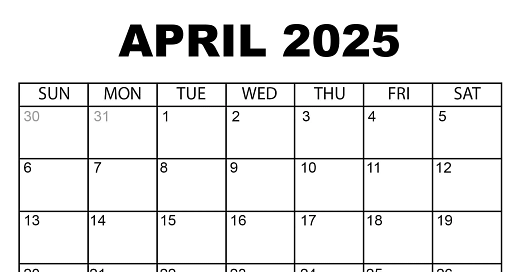Well, I actually have a few things to share this week.
First, I wrote a post about “The Barter Theater and the Importance of Alternative Stories",” which uses as a leaping-off point a post by Grace Walker who had written a Substack post entitled “eat the box office” in which she wrote about having been inspired by the origin story for the Barter Theatre in Abingdon, VA. I, too, have been inspired by that story, and encouraged by the fact that so many established theater artists told Rob Porterfield, Barter’s founder, that his idea just wouldn’t work, but he did it anyway and he proved them wrong. I’m not certain where Ms Walker encountered this story, but I suspect it might be Todd London’s invaluable anthology An Ideal Theater. “Students, in my opinion, need to hear this story and stories like it (there are many, many more just as innovative), but most theater programs don’t include them anywhere in their curriculum, which is a damn shame,” I wrote. “A semester-long course could be devoted solely to London’s anthology – I know, because I’ve done it many times myself. While American Theater Magazine publishes an article by a theater professor who says that students need to learn more about the new demands of getting a job in the traditional New York theater (websites, video clips, etc.), I believe that they should be receiving information about how other theater artists have created vibrant and innovative artistic lives outside of that dehumanizing environment.” In the last sentences of my post, I muse: “I don’t know. Maybe I need to do such a course on-line.” I hope Ms Walker will continue to question, and not be dissuaded by nay-sayers. I sincerely believe that there are better ways to lead a creative life in theater than those currently promoted.
If you’re curious about my personal writing style (and why wouldn’t you be?), I wrote “It’s Just My Opinion and Other Time Wasters,” which is basically a restatement of Ralph Waldo Emerson. Some once said that I “write mostly in declarative sentences,” and apparently some people find that sounds arrogant. Oh, well!
I also added on to my previous post about AI, but this time closer to home: On AI in Music Composition and Image Generation. As usual, I seem to be an outlier, as artists seem to be in a wild mood about AI “stealing” their work without permission and stuff like that. I argue, among other things, that “the new Most Important Person in the Room is going to be people who have a command of descriptive language and knowledge of past art styles and artists. In other words, art and music history majors, or more broadly, the humanities.” And that AI will encourage the democratization of creativity, which I consider a positive thing four society.
“More people will be able to have the experience of _making something themselves_. Instead of creativity being confined to a small number of designated professionals, people will be empowered to express themselves more gracefully. I can imagine parents and grandparents, aunts and uncles, who previously had to buy whatever birthday cards and party favors were available at Target, being able to generate things specific to their kids' likes and interests. People who never could draw or play an instrument will, through the power of words, be able to express themselves. Kids will develop an interest in art and music (and film, when that technology matures) that they wouldn't have had if they'd needed to buy a piano or a raft of art supplies. People will more easily be able to create an image for a blog post, or for their web page. In other posts, Mollick asks the AI to create an interactive game for him to teach certain skills that he teaches in his business classes. Teachers will be able to create presentations and teaching games tailored to the kids in their own classroom. This is like the transition from having to know HTML to create a website to being able to do so through drag-and-drop elements in Wordpress. It's similar to using Adobe Photoshop without the steep learning curve, or at least, a _different_ learning curve. Will this reduce jobs for commercial artists or composers? Maybe at first, but at some point professionals, who are skilled in working with AI, will be in demand because they have joined an understanding of AI with their own knowledge and creativity to make fabulous things that someone else would never have imagined.”
This data is over 20 years old, but I doubt is has changed much since then:
“One study (Leveraging Investments in Creativity 2003) found that 79 percent of all grants to individual artists were under $10,000, 66 percent were under $5,000, and sadly, 50 percent of all grants to artists in this country were under $2,000.”
Because Art John R. Killacky
But by all means let’s stay locked into the non-profit model for the arts. It’s really working!
Thanks for reading!
Scott





